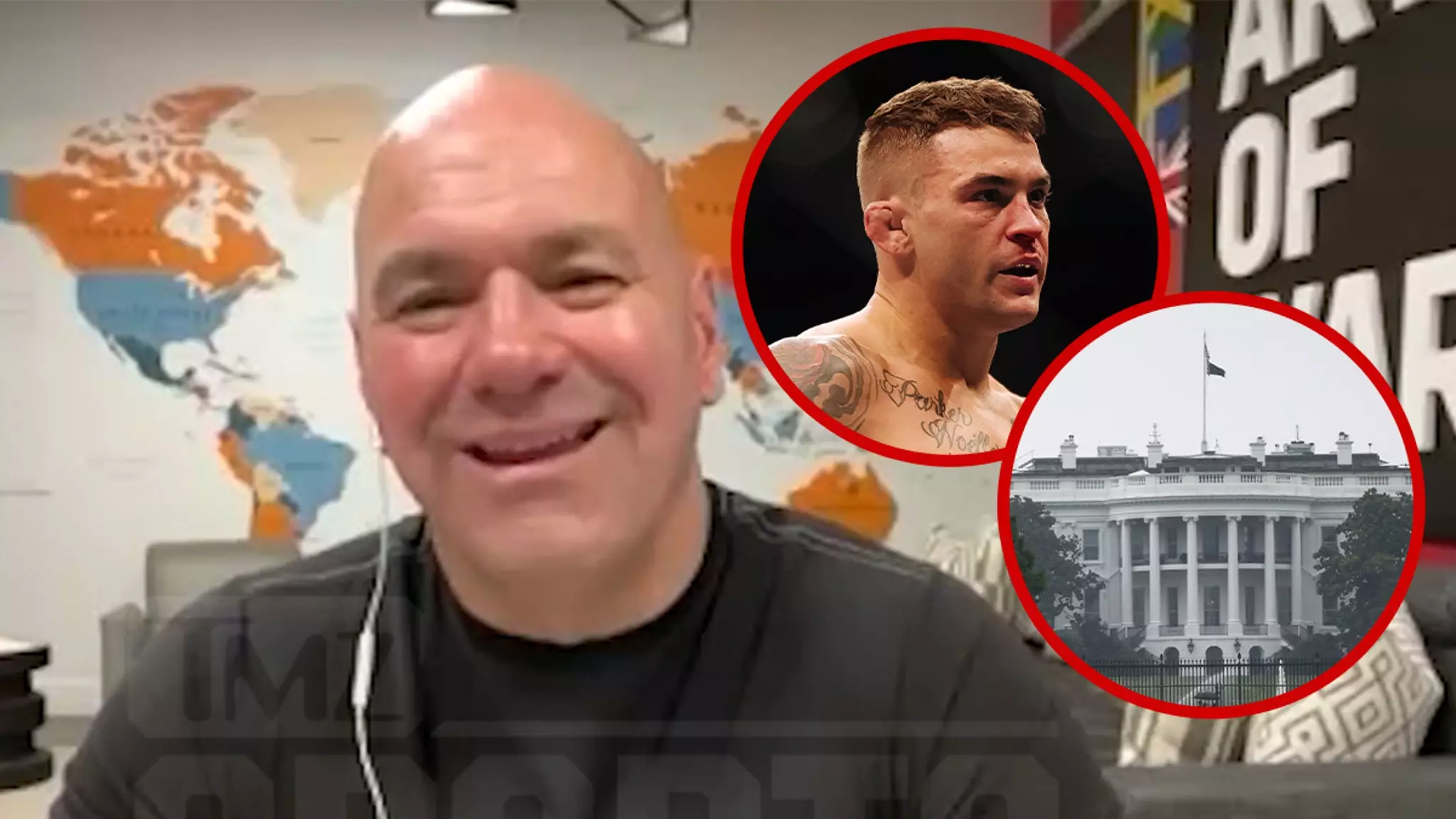The UFC’s plan to hold a premier event at the White House signals a bold shift in how sports can intersect with national identity and political landscapes. Historically, combat sports have thrived in arenas, stadiums, and dedicated venues, but never within the storied halls of America’s executive home. Dana White’s announcement of meticulous preparations for this unprecedented event demonstrates a strategic vision that transcends entertainment, positioning MMA as a cultural force capable of fostering unity and national pride on an entirely new platform.
Such an endeavor is not merely about staging a fight; it is an act of cultural symbolism. By choosing the White House as a venue, the UFC aims to challenge traditional notions of where and how sports can be experienced and appreciated. This is a statement that combat sports are more than just violent competitions—they are an integral part of American tradition and community building. The event, slated for the 250th anniversary of U.S. independence in 2026, underscores the role of sports as a vehicle for celebrating the nation’s founding ideals and resilience.
Strategic Political and Cultural Significance
The involvement of then-President Donald Trump as a close friend of Dana White adds a layer of political intrigue that elevates this event beyond conventional sports milestones. Trump’s publicly expressed admiration for the White House’s value to the American people and his enthusiasm for sharing it with the public reflects a broader desire to make national landmarks accessible and meaningful. Hosting an MMA fight at this historic site could serve as a groundbreaking example of sports diplomacy—breaking down barriers between politics, tradition, and popular culture.
Critics may argue that intertwining politics with sports risks politicization and divisiveness, but White’s perspective seems rooted in patriotism and an inclusive vision. The suggestion that fans, not just elites, should experience the White House’s grandeur aligns with Trump’s philosophy that the property belongs to all Americans. This could foster a sense of collective ownership and pride, reimagining the White House as a symbol of unity rather than a partisan venue.
The logistical challenges—security, crowd control, and event planning—are immense, yet they underline the event’s significance. Successfully executing such a spectacle could pave the way for future large-scale sporting events hosted at iconic landmarks, transforming the relationship between sport, history, and national identity.
Star Power and Future Impact
Even with years remaining before the event, the buzz among fighters indicates the importance placed on this landmark occasion. Fighters like Conor McGregor and Jon Jones are already eyeing potential roles, demonstrating that the event is on the radar of MMA’s biggest stars. This strategic anticipation ensures the event will have immediate star power, drawing global attention and further cementing MMA’s mainstream relevance.
White’s commitment to populating the card with fan favorites and top contenders guarantees a compelling showcase that appeals to diverse audiences. The event’s timing coincides with the sport’s rising momentum, promising not just a spectacle but a catalyst for UFC’s continued growth and influence.
Meanwhile, Dana White’s broader activities—such as the collaborations in boxing, notably the upcoming Canelo Alvarez vs. Terence Crawford fight—indicate his ongoing effort to reshape combat sports into a unified, mutually supporting ecosystem. This event at the White House could serve as a flagship for White’s vision: elevating MMA to the status of a unifying national celebration.
Redefining Sports as an American Institution
Ultimately, the UFC’s White House plan is a testament to the evolution of sports’ role in American society. It’s an assertion that combat sports can serve not only as entertainment but also as a reflection of national values—strength, perseverance, and unity. When the fight card is finally announced, and perhaps when the event occurs, it will symbolize more than just a fight; it will exemplify how sport can serve as a bridge—linking past, present, and future in the grand narrative of American identity.
This initiative challenges conventional boundaries, urging us to rethink the space sports occupy in national consciousness. By utilizing America’s most iconic institution as a backdrop, MMA experiences the potential to become an agent of cultural expression and patriotic pride. As we look to 2026, this event promises to be a defining moment not just for UFC, but for how sports can shape, reflect, and elevate our collective patriotism and cultural legacy.

